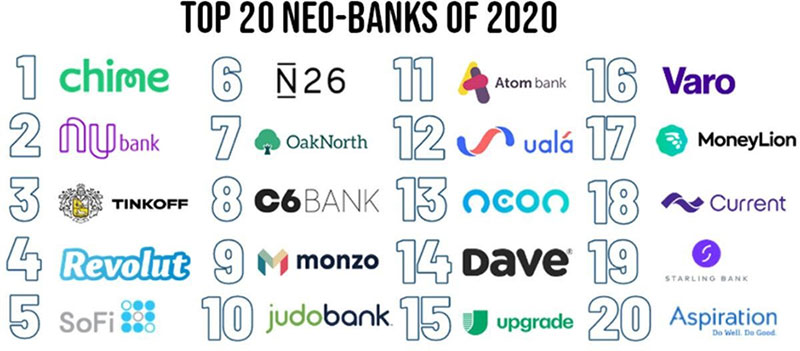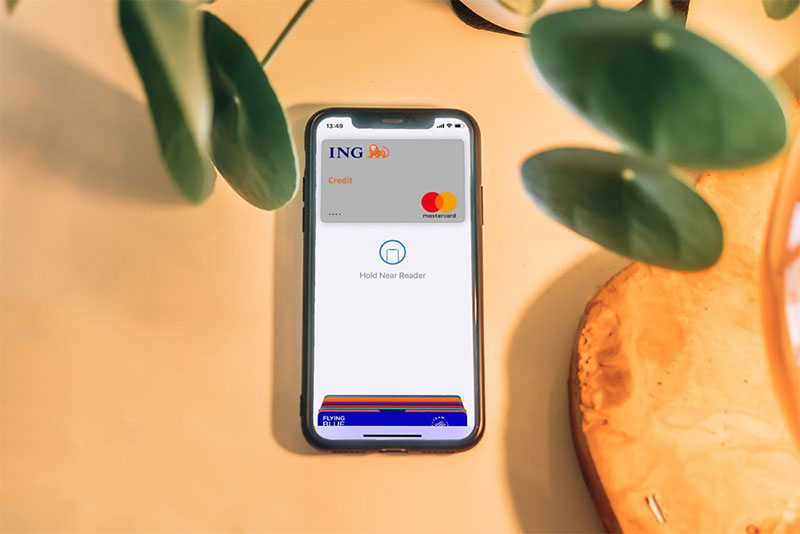5 Financial Technology (FinTech) Trends to Watch Out for B2B Companies
As technology has effortlessly seeped into various aspects of our lives, its influence was inevitable in the finance industry as well. It wasn’t long before the concept of online banking was begotten which led to all consumers, whether retail or business accounts, using miscellaneous bank services from the palm of their hands. Online banking has also put a stop to the long queues at the bank offices for a task as minuscule as depositing cash.
Financial Technology (FinTech) has been a key strategy to revolutionize financial institutions and is gradually being adopted as we adapt to the technology around us. Even though the actions to virtualize the financial sector have been set in action for quite a while, as we withstood the COVID-19 pandemic, all the financial institutions had to quickly virtualize their day-to-day operations which opened a floodgate of innovations that could be embraced.
With a new innovation grazing our newspapers every day, the top fintech trending technologies can be unpredictable. Nevertheless, some of these trends have matched the hype and can be touted as the future of financial services. All B2B companies can rely on these services to be on top of the game as we look at some of these trends.
Neobanks
Djon Ly, Digital Marketing Manager at STATRYS, a multi-currency business account that aims to simplify domestic or international payments, shared insights on FinTech trends “Neobanks has taken the world by storm and has been able to deliver all the promises it made so far. These are digital-only banks with no physical branches as all the work is done through applications.” Even though the concept of a neobanks sounds too good to be true, their popularity has increased steeply in the last decade which indicates that their performance has been pleasing to the users. It is also evident that people have chosen neobanks to avoid the hassle that comes with traditional banking.
Furthermore, there are many advantages of using a neobank over a traditional one. Djon added, “With neobanks, the account setup times have been minimized and the upfront costs are very minimal as the bank does not have to worry about overhead costs of running an office like traditional banks.” For the most part, the customer service is 24/7 which gives it another edge over traditional banks. Apart from that, benefits like being traveler-friendly, high cash-back, and account options have made clients choose neobanks to complete their financial tasks.
Daniel Close, CEO and Founder of We Buy Houses in Kentucky believes “Revolut, Wise, and Monzo are a few of the examples of the neobanks that have been popular in the recent past. With their lower fees and options to diversify the income of a client by including crypto and stock investing, it does not seem like an overstatement that neobanks will soon overtake the regular banks in a number of clientele.”

Source: Fintech News America
Big Data
Big Data has been in trend for a while now as everyone around the world continues to recognize the power of data. Structured or unstructured data that can be utilized to predict the future of businesses refer to as Big Data. As all industries are in a chase to utilize this data, the financial sector is also not far behind. The data can be used to predict customers’ behavior and develop strategies to attract new ones, added Edward Mellet, Director of WikiJob.
Big data is heavily connected to artificial intelligence services as the collected data can show the AI technologies that can be embedded in the fintech services. For instance, it can be costly to have a customer service representative attending to every issue. Therefore, the data could be collected to check for the issues that most of the users face when using the service. The solution to those issues can be, in turn, provided by a chatbot.
Sandra Rios, Director of Client Services at Buzz Agency says “AI and Big Data can be used simultaneously to improve the user experience and improvise fraud detection systems.”
The Internet of Things (IoT)

Luke Lee, Founder of PalaLeather says “The IoT has transformed our world and how. Every device around us, from our phones to our house locks has switched to ‘smart’ technology. The aforementioned concept was just a figment of the imagination a couple of decades back but now our lives are governed by the devices we wear.”
The IoT has been adopted in FinTech with the advent of cashless payments, mobile point-of-sale options rather than terminals which are more costly to set up, and biometric identification through smartwatches and smartphones. This has also reduced the human effort required behind repetitive tasks by automating them, added Nick Oberheiden, Founder & Attorney at Oberheiden P.C.
IoT has enabled fintech companies to gather more data from applications and make more informed decisions. Fintech has been offering IoT solutions through wearable devices. Companies like FIS offer customized banking solutions to each customer based on their needs while SoFi, a company based in California, allows its users to keep a track of all the payments they have lined up including student loans, mortgages, and other commitments.
Blockchain Technology

Blockchain is usually also referred to as a ‘distributed database’. It is an immutable data block that contains information about the transaction such as the sender, receiver, and the amount that is transferred. This technology has been forthcoming as a step towards decentralization of transactional history, adds Kenny Kline. President & Financial Lead at BarBend.
Throughout history, intermediary parties such as banks or loan companies had to chime in to make sure that all the payments for an asset are paid on time. This made the payment process tedious and yet, prone to error. With the advent of blockchain technology, data that is stored can not be forged, changed, or deleted as hash verification is available for each block. Therefore, the payments can only be accepted when all the information is verified. All of this gives rise to decentralized systems.
Steve Rose, Vice President at Money Transfers shares insight “Blockchain has been popularized in fintech because of its ability to keep immaculate data on all transactions with fewer commissions charged in case of transfers. It is also very useful in preventing fraud as there is more transparency and none of the transactions, once made, can be altered.”
Open Banking

Adam Wood, co-founder of RevenueGeeks says “In open banking, banks share limited data with different financial institutions to improve the user experience.” As controversial as this sounds, open data has actually benefited the users for they can use a variety of services, along with being beneficial to banks because they are able to retain their clients. For instance, a user would like to know how much of their monthly budget gets spent on food. The bank could have that option in its own app but that might be hard to access from the plethora of other options and might not be useful to each customer. To come up with a solution for that, the bank can share this data through an API with a third party that can do the analysis.
On the other hand, the institutions that receive this information include loan organizations, shops, and many other finance-based services. With the help of clients’ data they receive, they can choose to provide a loan to the client or allow installments for an asset. As a result, it makes the institution make an informed decision.
Bonus trend: Virtual Cards

With the advent of the new millennium, online shopping hit its peak and along with that came online fraudulent activities. However, it seems like we have found a solution to these scams as contactless virtual cards are now becoming mainstream. Jake Smith, Managing Director at Absolute Reg tells “Virtual cards are connected to your debit account in most applications and are provided by traditional banks, neobanks as well as e-wallet providers.
Virtual cards have digital code which is usually disposable after a single use. Every time a new purchase has to be made, a new code is generated which can not be reused, therefore, preventing the fraudsters from stealing the information.” Many virtual cards do not come with any cost to the user. They provide quick transaction options to the user, are very cost-effective for banks as there is no use for physical cards anymore and they also save the anonymity of the user as confidential information can be hidden, mentions Bram Jansen, Chief Editor of VPNAlert.
Conclusion
Fintech has been constantly evolving and the kind of services that can be offered in a decade is beyond the grasp of imagination. The banking landscape has been restructured with the arrival of neobanks. B2B companies can take the advantage of neobanks to minimize costs while keeping a track of all the transactions made. Along with that, the data that is collected is used to produce better AI services with fewer chances of error summarizes Andrew Priobrazhenskyi, CEO of DiscountReactor.
Along with that, blockchain technology and open banking have made the banking system as secure as possible while providing more benefits to the user than ever before. All of these prior mentioned technologies have resulted in a better user experience and are a win-win situation for all the parties involved. It would be hard to predict which fintech services will be available in the future but a company that uses the available technologies can witness prolific growth in its profile.